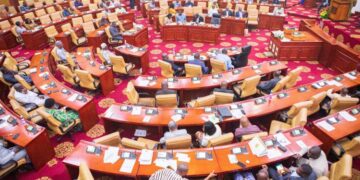Parliament has passed the Public Holidays and Commemorative Days (Amendment) Bill, 2025, ushering in new changes to the national holiday calendar and reigniting debate over historical memory and inclusivity.
The new legislation restores July 1 as Republic Day, formally recognizing Ghana’s transition to a republic in 1960. The day, which had been downgraded in previous reforms, will now be observed as a statutory public holiday.
In a move aimed at religious inclusion, the bill also introduces Shaqq Day, a new holiday for the Muslim community to be observed the day after Eid-ul-Fitr. The day is intended to allow extended reflection and celebration following the Islamic festival, fulfilling a long-standing request from Muslim leaders.
Another major change is the repeal of August 4 as Founders’ Day, a date that had sparked controversy over its collective recognition of Ghana’s independence leaders.
In its place, September 21 the birthday of Ghana’s first President, Dr. Kwame Nkrumah has been reinstated as Founder’s Day, restoring exclusive national recognition to the man widely regarded as the architect of Ghana’s independence.
“We’ve taken out the 4th August because we believe that as a country, we are not unanimous around it.It has served as a divisive day for us as Ghanaians.”
The bill also empowers the President to shift public holidays that fall midweek on Tuesdays, Wednesdays, or Thursdays to the nearest Friday or Monday.
The aim is to improve productivity, reduce disruptions to the workweek, and boost domestic tourism.
“Honourable members, the Public Holidays and Commemorative Days Amendment Bill 2025 is duly read the third time and passed,” declared First Deputy Speaker Bernard Ahiafor.
The amended holiday schedule retains key observances such as Independence Day (March 6), Constitution Day (January 7), Labour Day (May 1), and the two Islamic Eids.
The total number of statutory holidays now stands at 14.




















